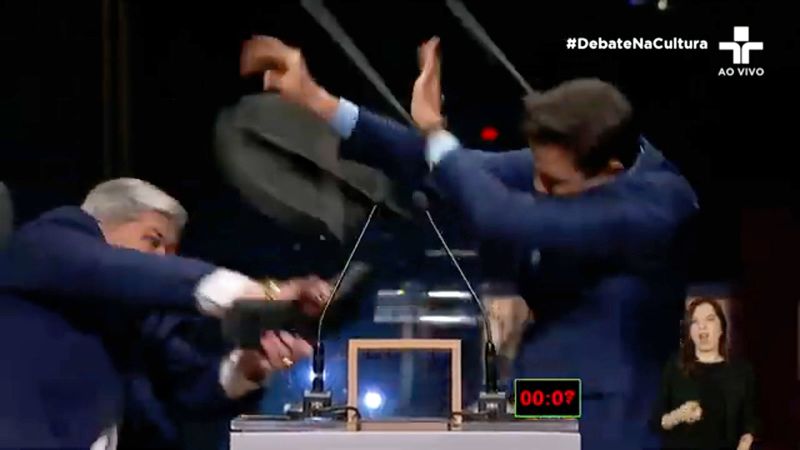The recent mayoral debate in Brazil descended into chaos as a candidate resorted to violence by attacking his rival with a chair live on TV. This appalling incident highlights the deep-rooted issues within Brazilian politics and raises concerns about the state of political discourse in the country.
The use of violence in a political debate is not only shocking but also deeply concerning. Political debates are meant to be platforms for candidates to present their ideas and visions to the public, engage in constructive dialogue, and demonstrate their leadership capabilities. Resorting to physical violence not only undermines the legitimacy of the political process but also sets a dangerous precedent for future debates.
The mayoral debate turning violent is a reflection of the intense competition and polarization that often characterize Brazilian politics. Political rivalries can become heated, and candidates may resort to extreme measures to gain attention or discredit their opponents. This hostile environment is detrimental to the democratic process and erodes public trust in the political system.
Moreover, the use of violence in a public forum like a televised debate sends a disturbing message to the public, especially to young people who may be watching. It normalizes aggression and undermines the principles of civil discourse and peaceful conflict resolution. Political leaders have a responsibility to set a positive example for their constituents and promote a culture of respect and tolerance.
The incident also highlights the need for stricter regulations and security measures during political events. Ensuring the safety of candidates, moderators, and audience members should be a top priority to prevent similar incidents from occurring in the future. Political debates should be conducted in a secure and controlled environment to uphold the integrity of the electoral process.
In conclusion, the violent outburst during the mayoral debate in Brazil is a stark reminder of the challenges facing the country’s political landscape. It underscores the urgent need for a shift towards more respectful and constructive political discourse. Brazilian politicians must prioritize dialogue over confrontation and work towards building a culture of tolerance and cooperation. Only by fostering a climate of mutual respect and understanding can Brazil’s democracy thrive and serve the interests of all its citizens.

